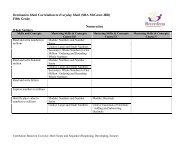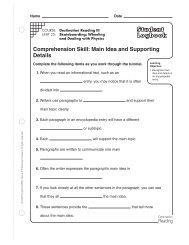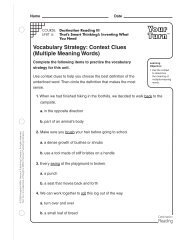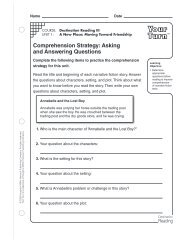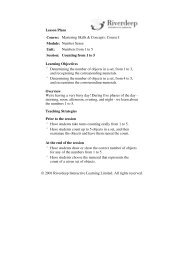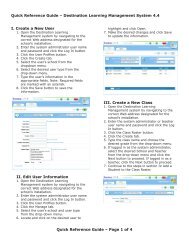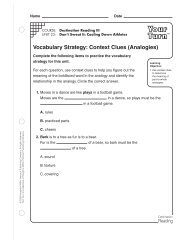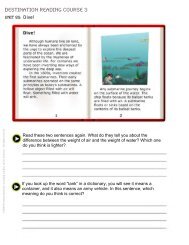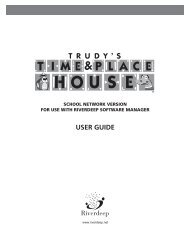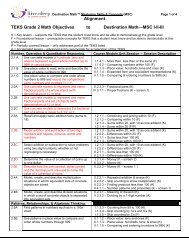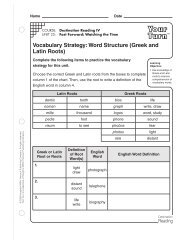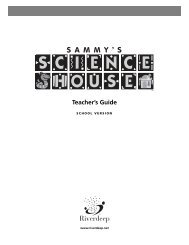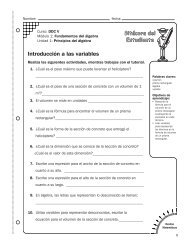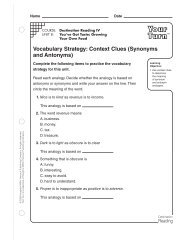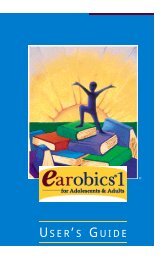Course III Teachers Guide.pdf - Houghton Mifflin Harcourt
Course III Teachers Guide.pdf - Houghton Mifflin Harcourt
Course III Teachers Guide.pdf - Houghton Mifflin Harcourt
Create successful ePaper yourself
Turn your PDF publications into a flip-book with our unique Google optimized e-Paper software.
DESTINATION READINGGETTING STARTED 8Teacher's <strong>Guide</strong>• Definitions of instructional terms (Lesson 1)Tip: Be sure students understand instructional terms before they work with the <strong>Course</strong>ware. When appropriate, askstudents to provide similar terms from their own cultures. For example, when discussing mysteries, ask students toname detective stories that they have read in their native languages.• Discussion questions and activities to access students' prior knowledge and build background (Lesson 1)Tip: For nonfiction units with technical and/or particularly challenging content, spend additional time accessing priorknowledge and building background.• Specific unit-by-unit suggestions for addressing the needs of English language learners. (These appear in Lessons1, 2 and 4.)• Graphic organizer (blackline master) for each unitThe graphic organizers provide English language learners a way to process information visually and seerelationships between concepts.Tip: Hand out copies of the graphic organizer. Spend a few minutes going over the organizer, explaining its purposeand defining any unfamiliar vocabulary.Additional Resources• Reading Logs (blackline masters)This component provides the text of the comprehension, thinking, and vocabulary audio prompts that accompanyeach strategic reading passage in the courseware. The Reading Logs are found under the Resources section of theRiverdeep Learning Management System.Tip: Before students read the passage, hand out copies of the prompt scripts so that they can follow the text as theylisten to each prompt. Students can refer back to the handout as often as necessary.Additional Classroom PracticesThe following classroom practices can be implemented to support English language learners using Destination Reading.• Pair an English language learner with a native English speaker to work with the courseware. Have the pairs worktogether throughout the unit. Students may also enjoy reading passages to one another.• When students are provided with writing opportunities in the courseware, allow them to use social language("playground" language) in their writing and to incorporate words from their native languages.



